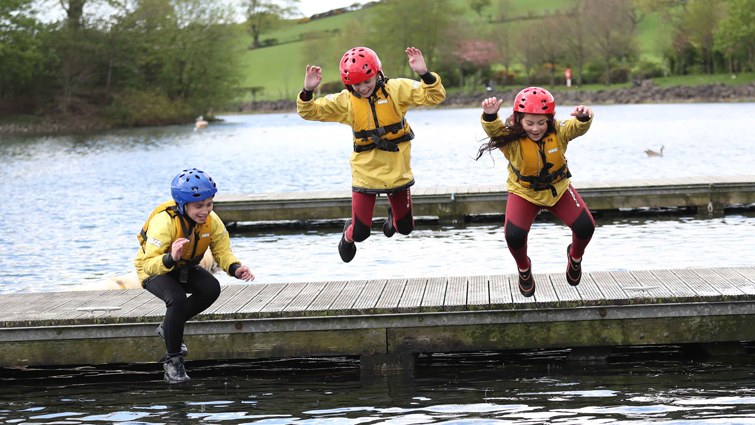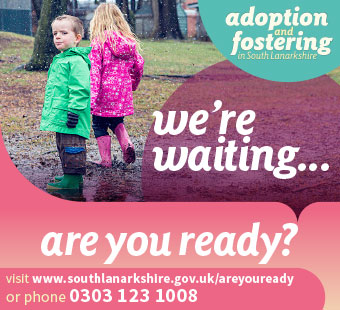Have fun but put safety first #RespectTheWater
Published: Thursday 10 June 2021

With summer here and Covid rules easing lochs, rivers and ponds can look enticing but there’s a warning to #RespectTheWater.
Water Safety Scotland and safety charity RoSPA (Royal Society for the Prevention of Accidents) are backing a summer safety campaign to highlight how easily a cooling dip or a fun splash about can go dangerously wrong.
Figures show that tragically around 97 people drown each year in Scotland. Last year the number of drowning fatalities rose above that with 99 lives lost.
South Lanarkshire’s Chair of Community and Enterprise Resources, Councillor John Anderson, said: “It is very welcome that we are now in a position to encourage people to get out and about and enjoy all that South Lanarkshire and Scotland has to offer but it is vital that we put safety first especially around water.
“We are giving our complete support to the Respect the Water campaign and its core message of have fun but stay safe.”
Carlene McAvoy from Water Safety Scotland said: “Last year, post lock down, people flocked to the coast and inland waters and there was an alarming increase in drowning incidents across the UK.
“Water Safety Scotland is particularly concerned that the easing of lockdown conditions this year may see another surge in drowning incidents as people head to beaches, rivers and other waterways.
“Water Safety Scotland is keen for people to get out and enjoy the waterways of Scotland, but we want people to do this safely.”
Key safety tips include:
Stop and Think, Spot the dangers
- Scotland’s Waters can be very cold even in the summer which can lead to Cold Water Shock
- Check for any signage or flags which could warn you of potential dangers
- Alcohol/drugs and coastal or inland waters don’t mix - they can reduce coordination and impair judgement and reaction times
- The depth of the water may hide underwater ledges, hidden currents and unseen items
- Be aware of other water activities that may pose a threat to you
- If it is safe to enter the water, ensure you have a safe way out
- If you are at the coast have you considered rip currents, offshore winds and the tide?
Stay Together, Stay close
- It is better to go near the water with a friend or family member
- Float – If you are in trouble in the water, float until you feel calm…then think what to do next
- If you fall into water, fight your instinct to swim until cold water shock passes
- Lean back, extend your arms and legs
- If you need to, gently move them around to help you float
- Float until you can control your breathing
- Then call for help or swim to safety.
In an emergency:
- If you see someone in trouble, do not enter the water
- Look for a throw line or life ring to help whilst you wait on the emergency services
- Call 999 or 112

25 April 2024
Plans for East Kilbride take a step forward
25 April 2024
Funding supports what matters most to young people
24 April 2024
Wish list helps group continue to support families in need
23 April 2024
Food for thought as primary school pupils win book challenge
22 April 2024
Locals to benefit as new bridge opens
19 April 2024
Air quality action plan consultation
19 April 2024
Wish for new laptops granted
19 April 2024
Big Vern 'n' the Shootahs bring the party to Lanark
18 April 2024
A grand boost for wellbeing in the community
17 April 2024
Community Kitchen wish moves a step closer













